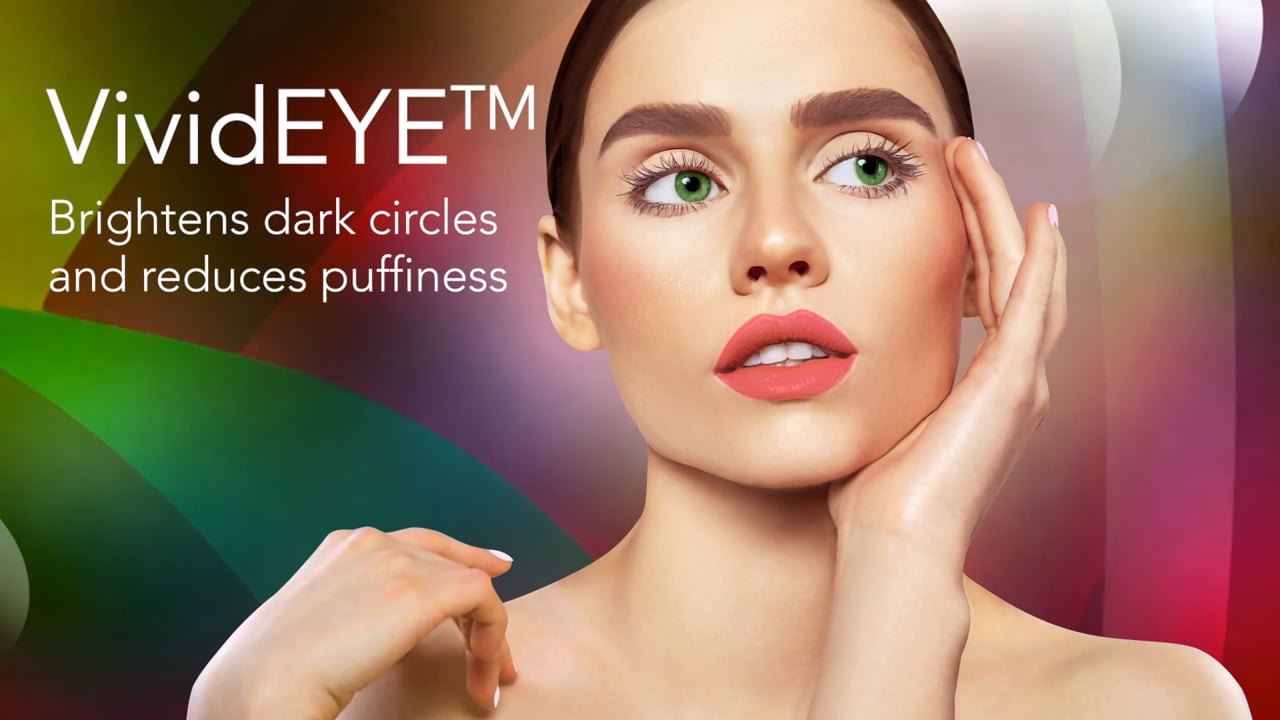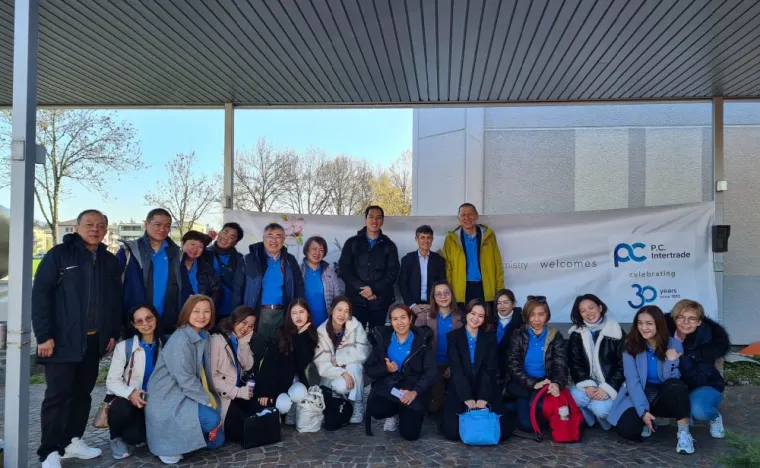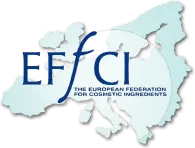Successful Participation at the 32nd IFSCC Congress in London
From Sept 19th until Sept 22nd, the 32nd IFSCC congress took place in London with the theme “Where Beauty, Science and Innovation Meet”. Since 2019, it was the first IFSCC congress to be held on site and in person again. And the excitement was palpable - after 2 years, the most important cosmetic congress could finally meet live again!
With an exciting scientific program consisting of both podium and more than 250 poster presentations, the latest developments in cosmetic science were discussed – and important new topics relevant to the industry were introduced.
Mibelle Biochemistry also made its mark at the 32nd IFSCC congress in London, with 3 poster presentations and one podium talk, covering an array of new and exciting topics in the field of cosmetic science. Below, we will explain the topics presented in a little bit more detail:
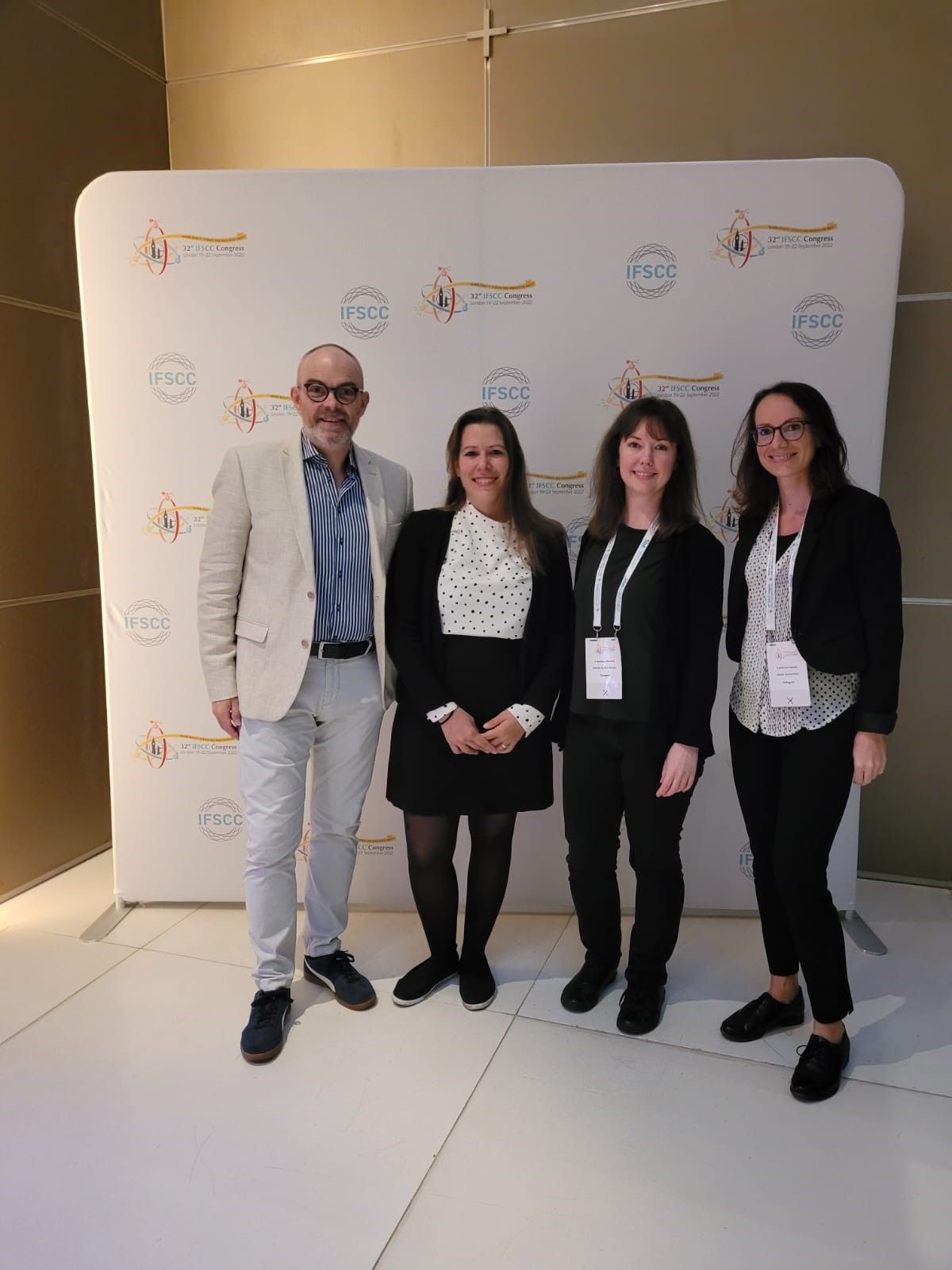
A topic that can affect all of us are the effects of psychological stress on our skin. Especially in the times of the Covid-19 pandemic many people felt anxious and stressed or even depressed. Stress leads to reactions in our body, such as the increased release of cortisol which is also known as the body’s stress hormone. Cortisol is needed for many functions in the human body but if cortisol levels are too high, it has negative effects. As cortisol is not restricted to the primary nervous system, but also occurs in the skin, psychological stress not only affects our general health but also the condition of our skin. The underlying mechanisms, however, are still not fully clear, and more research and models are needed to analyze the effects of stress on the skin and to screen for protective cosmetic ingredients.
One poster that was presented by CTI Biotech at the IFSCC was based on a collaboration of Mibelle Biochemistry and CTI Biotech in Lyon (France). Together we have developed a model to analyze the effects of psychological stress on the scalp. For this, small pieces of scalp explants (obtained from plastic surgeries) were treated with cortisol and its effect was evaluated by the release of different molecules involved in inflammation.
Another poster we presented at the IFSCC introduced a new skin stem cell model which we developed together with Curio Biotech SA in Visp (Switzerland). The goal of this project was the establishment of a model to assess the effects of psychological stress on the skin. For this, epidermal stem cells were treated with different stress inducers that are all linked to the stress response systems of our body. The effect of these compounds on the skin cells was measured by the release of different inflammatory molecules. The established assay was used to test the protective capacity of plant stem cell extracts to find potential new active ingredients that can protect skin stem cells from psychological stress and thus support the self-renewal capacity of the skin.
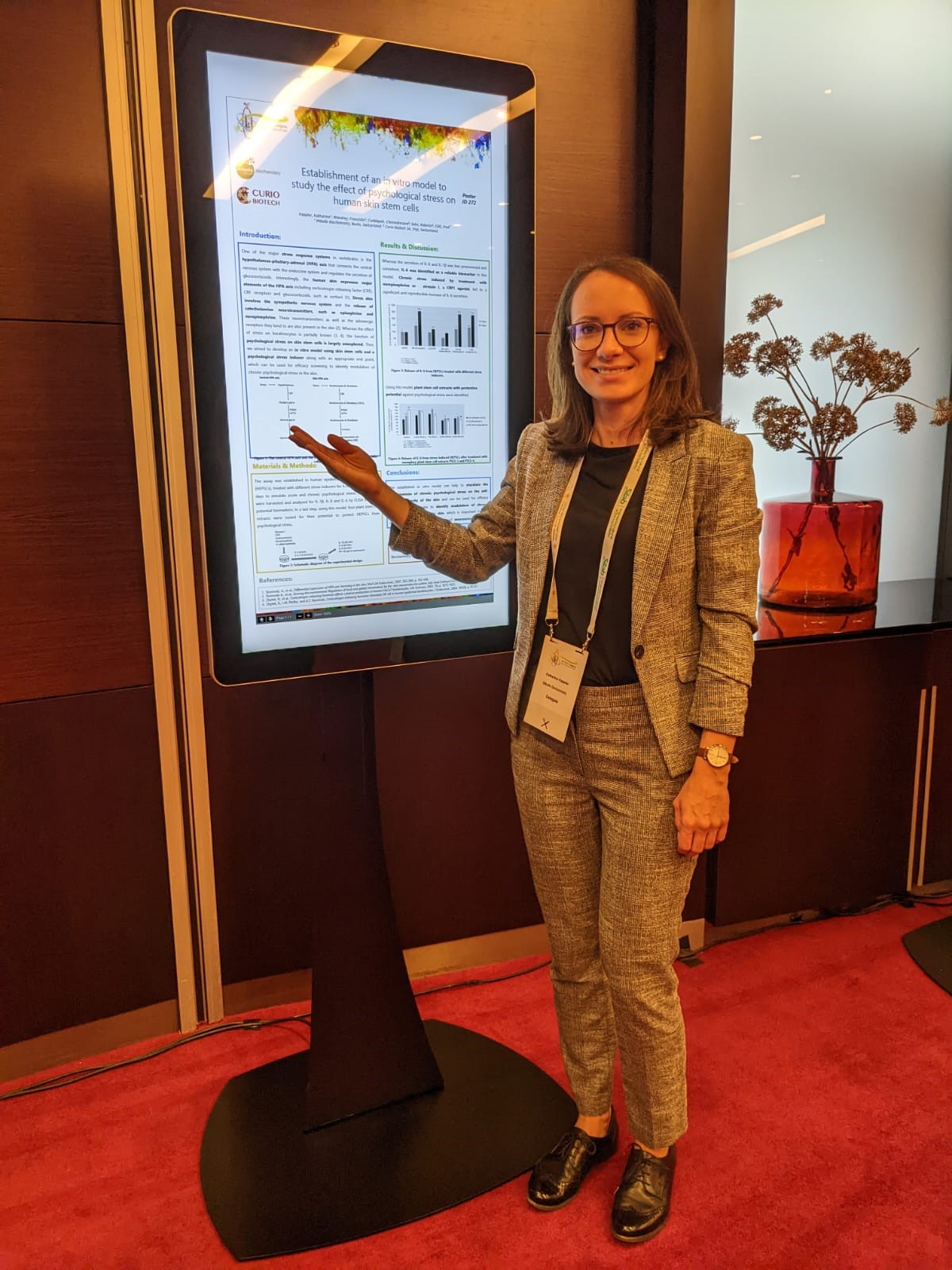
A further important topic covered was that of natural alternatives to classic ultraviolet (UV) filters. Consumers are more and more concerned about the effect of chemical UV filters on their skin and the environment, which is why the interest in natural filters is gaining much attention. The poster we presented was dedicated to the ongoing collaborative work with Professor Visilios Stavros from Warwick University. This research investigates the synergy in the battle against UV between sea and plant-based extracts for bio-inspired cosmetics applications. We used Ultra-fast spectroscopy to highlight the UV filtration properties and the photostability of our actives Noriguard nc (which contains mycosporines) and Detoxophane nc (which contains sinapoyl malate). Both molecules are known to be UV filters, derived from the sea and from plants. In the current work, we demonstrated that each of the actives alone, and moreover the combination of both, are highly innovative, unique, and efficient in vitro UV filters. This way, biomimicry from both the land and the sea can blend in harmony for the enhancement of cosmetic properties.
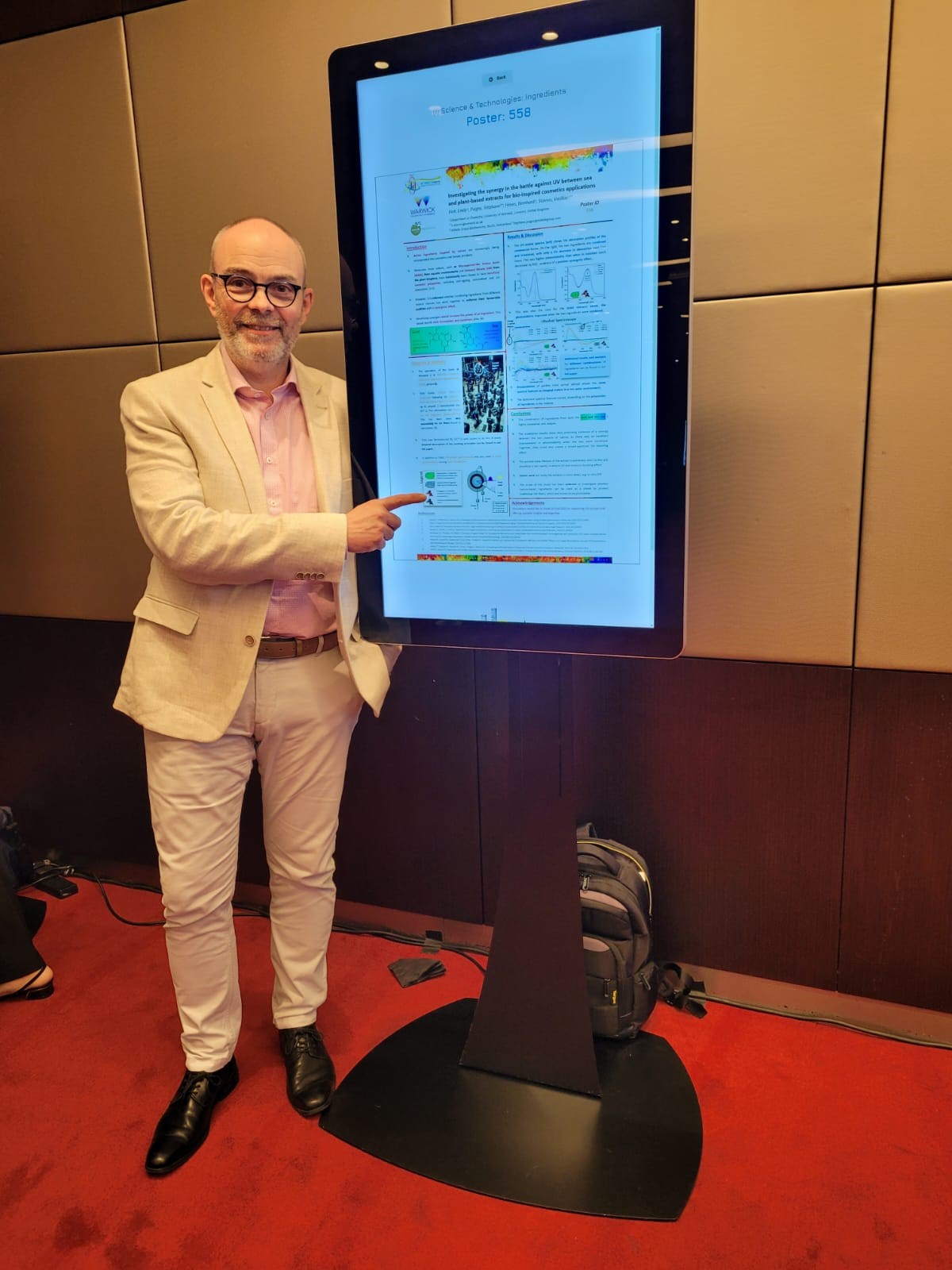
The last topic we presented in a podium presentation was a novel calcium delivery system, which can be used specifically to treat very aged or diabetic skin. An increasingly prevalent disease in our aging society is diabetes, and diabetic skin is predominantly characterized by a malfunctioning skin barrier. Underlying skin barrier malfunction is a reduced or defective calcium gradient in the epidermis. Consequently, replenishing the aged/diabetic skin’s calcium stores with topical calcium could be a potential therapeutic approach. With our novel Ca2+ vector system, we highlight the delivery of bioavailable Ca2+ ions into the skin as a new and successful approach to treat a damaged barrier present in diabetic, aged, or atopic skin.
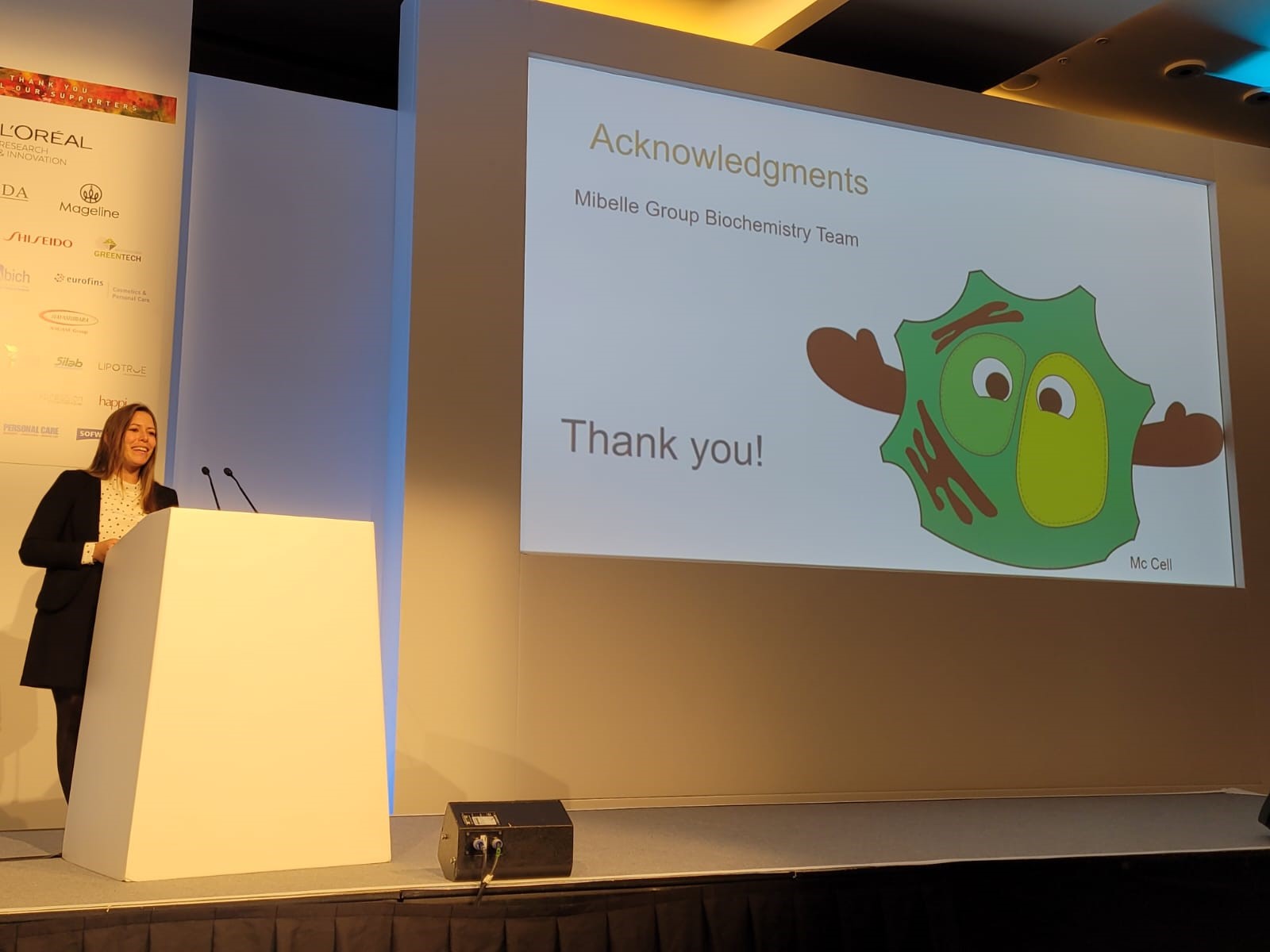
To conclude the very interesting meeting, we were not only able to catch up with our collaborators and acquaintances from the field of cosmetic science, but also network and make some interesting new connections with scientists from around the world.
This will further drive Mibelle Biochemistry’s innovation and future designs, which of course will be in accordance with our philosophy “inspired by nature – realized by science”.



